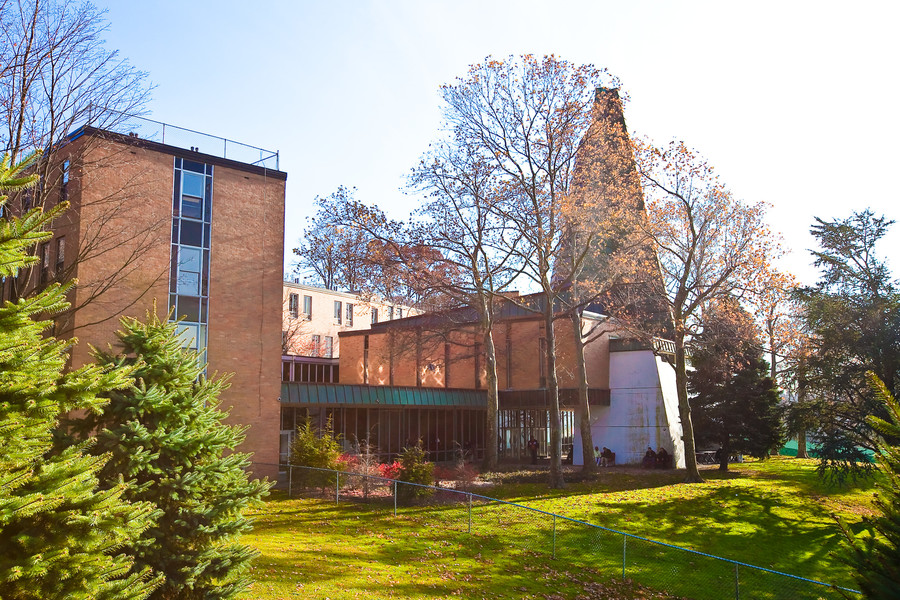Hebrew Home seeks to expand
The Hebrew Home for the Aged at Riverdale has filed plans to construct three buildings with 388 independent senior living units and accommodations for 90 other elderly people.
The group sent the plans to the Department of City Planning on April 27, after several years of talks with Riverdalians. When previous versions of the plans were discussed, some residents said new buildings on the Hebrew Home campus would warp the character of the neighborhood, which mostly contains single-family homes and abundant greenery.
But in a recent interview, Hebrew Home President and CEO Dan Reingold pointed out several ways his organization has changed its plans in an effort to address residents’ concerns.
“This version reflects the many, many changes and concessions that we’ve incorporated into the design, and we’re very anxious to move this forward,” he said, noting that the latest version of the plans lowers the height of two buildings proposed for the site’s south campus and completely scraps another one.
Mr. Reingold explained that most of the new units will be part of a 12-story building on the northern part of the campus, which is zoned R4. There also will be six- and four-story-tall buildings on the southern part of the campus — previous plans called for two eight-story structures — which is zoned R1. Residents including members of the grassroots Riverdale Community Coalition had strongly objected to construction on the R1 lot, which is zoned for single-family homes.
The new buildings would comprise a continuing care retirement community, or CCRC, which offers independent-living apartments along with elder care services. The idea is to let people age on their own terms, eventually transitioning to a traditional nursing home if need be. Recently passed zoning changes allow builders to apply for a permit to build CCRCs in areas with R1 zoning, requiring them to go through a lengthy review process.
The Hebrew Home’s plans include demolishing a building with 150 nursing beds. Mr. Reingold said his organization’s shift to emphasizing independent living services follows the latest trends in the state.
“New York State is going through a radical transformation, and it’s happening much faster than anyone expected,” he said. “What older adults want is to live independently as long as they can, to have services available as they age in place and to have the sense of a community that a CCRC offers.”
Plans that the Hebrew Home shared with the community in 2013 called for 300 independent living apartments. Mr. Reingold said his organization is now planning 388 such units to make the project financially viable. He explained that for the Hebrew Home to create small buildings on its south campus, thereby preserving nearby residents’ views of the Hudson River, the organization had to include extra units on the 12-story structure on the north campus.
“They’re not efficient, quite frankly, but we’re doing this as an accommodation,” he said of the four- and five-story-tall buildings planned for the south campus.
The south buildings would be a total of 157,610 square feet and the north building would be 398,390 square feet. The Hebrew Home is also planning a new underground parking garage on the south campus with 142 spaces.
The chairwoman of the Riverdale Nature Preservancy, which has criticized the Hebrew Home’s expansion plans since they became public several years ago, was circumspect about the latest proposal.
“I have seen the plans. The Riverdale Nature Preservancy will be looking at them closely and I think our interest and concern will be related to how they intend to satisfy the requirements of the zoning special permit,” said Sherida Paulsen, referring to the permit needed to build a CCRC in an area zoned as R1.
Northwest Bronx Councilman Andrew Cohen also voiced skepticism.
“I think the plans are essentially the last plan that we got. They’ve attempted to shift some of the bulk… [to] the north site, but they still plan to develop on the south site,” he said. “The site is zoned R1 and it should be developed in accordance with R1.”
Gary Tarnoff, a land use lawyer hired by the Hebrew Home, said the state departments of health and of financial services will review the plans to make sure they are “actuarially sound.” The plans also must go through the city’s Uniform Land Review Procedure, beginning with a vote by Community Board (CB) 8 and concluding with a vote by the City Council.
CB 8’S Land Use Committee Chairman Charles Moerdler said he was yet to see the plans, but expected a heated process once they reach the board.
“This is going to be a very hotly contested issue and there are people with very strong feelings on both sides of this thing,” he said.






